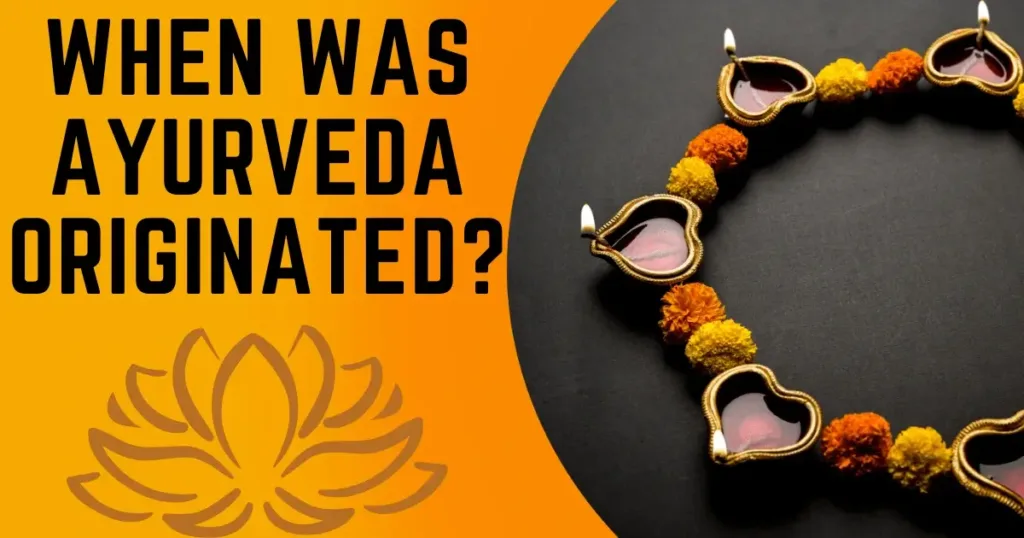Yes, Ayurvedic medicines do work.
Unlock Ayurvedic medicines potential: pain relief & performance boost for arthritis, plus symptom management for type 2 diabetes. More research for health!
Table of Contents
When was Ayurvedic medicine created?

The ancient Indian healing system of Ayurveda is known for its holistic approach to health and wellness. Established over three millennia ago in India, Ayurveda emphasizes the importance of a harmonious equilibrium between the body, mind, and spirit, primarily promoting good health rather than combating illness.
Ayurveda is known to work on the root cause of the disease rather than suppressing the pain and symptoms of the disease in the body. However, Ayurvedic treatments may be tailored to address particular health issues. In the United States of America, Ayurveda medicines are classified as complementary and alternative medicines.
How safe is Ayurvedic Medicine?

Ayurvedic medicine is a centuries-old practice that has been credited with aiding millions of individuals in achieving a healthier lifestyle. However, as with any medical system, there are potential risks associated with these therapies, such as contra-indications and adverse effects. This is especially true when the medicines are administered incorrectly, abused, administered improperly, or prescribed by an unqualified practitioner.
Therefore, consumers need to take responsibility when searching for Ayurvedic treatments. It is necessary to verify all practitioners’ credentials, training, and experience. Additionally, consumers must communicate with their convenience as well as Ayurveda practitioners. Patients should practice full disclosure of the therapies they are receiving and the side effects they are experiencing to avoid potentially hazardous therapeutic interactions.
Due to the presence of herbal elements in many Ayurveda therapies, the US Food and Drug Administration does not regulate the use of herbs or dietary supplements in Ayurvedic Therapeutic Medicine. ISAH, a professional society of the Ayurvedic Medical Association, recommends using herbal Ayurvedic therapeutics only when prescribed and under the supervision of a trained practitioner.
What are the Health Benefits of Ayurvedic Medicines?

Ayurveda has been effective in treating various chronic conditions, including diabetes, skin issues, digestive issues, fertility and women’s health issues, fatigue syndromes, and mental health conditions. However, Ayurvedic Medicines works on the root cause of the disease, but eventually, the progress of Ayurvedic medicine is a bit slow compared to allopathy.
Ayurveda talks about the five elements that make up the three main doshas or energies. These are the three Vata, three Pitta, and three Kapha, which are everywhere and everyone. They all affect different parts of the world, like the four seasons, the time of day, the human body, and how they interact with each other.
All three of these energies are present in people, and one of them is usually more potent than the others. And the main motive of Ayurveda is to maintain the balance of the body, i.e., to align the body in symmetry itself.
However, the practice of Ayurveda is beneficial when combined with Western medicine, as it can address the root cause of symptoms and treat individuals according to their constitution rather than just treating them symptomatically
Can Ayurvedic medicines cure the disease permanently?
Ayurvedic medicine provides a slow but permanent cure for various serious diseases, such as hemiplegia, hemorrhoids, and arthritis. However, the evidence of treatment still needs to be discovered. This is in contrast to allopathic medicine, which may only cure the disease briefly and cause various side effects. Ayurveda, however, can address the root cause of these diseases, allowing patients to remain healthy for the long term.
Additionally, Ayurvedic Medicines is based on the concept of the “Prakriti,” or body, with its various Doshas, as well as the age requirements of the patient. The main objective of Ayurveda is to align one body and bring balance to the body. When the body experiences the imbalance, the body experiences different kinds of diseases, and when the body gets back the core balance, all the disorders eliminate by themselves.
If diseases get develop inside the body on their own, then they can be eliminated from the body as well on its own, but external help is required to eradicate those diseases and here comes various herbs and ingredients that help the patient to eliminate those diseases, the different herbs, and ingredients are taken from mother earth.
Ayurveda has come across multiple medicines that help patients achieve that balance of body again and eliminate various dosha; however, the medication works on the root cause but works very slowly and steadily. Although the medicines work, the research and evidence for a permanent cure from medicine are still not available in adequate amounts to support the effectiveness of Ayurvedic medicines.
Do Ayurvedic medicines have side effects?

Some Ayurvedic herbs are safe, but some potent herbs can cause serious side effects. As research is still lacking in the field of Ayurveda therefore for many Ayurvedic medicines, no one can exactly tell if they are safe or not until allopathy, where research and development have taken significant advancement and for their better results they have specific research and studies backing it.
Although, If you take too many of these herbs or take them too long, you could have nasty side effects like stomach pain, diarrhea, feeling sick, vomiting, loose movements, and even an allergic reaction. It has even been observed in some cases that overdoses of certain ayurvedic medicines cause liver damage too, which is a critical issue nobody would ever like to encounter. Therefore it is always advisable to only take any Ayurvedic medication before consulting a doctor first – as ayurveda medicines can cause many problems too.
Ayurvedic medicine limitations?
The main limitation is in emergency medicine. Ayurvedic Medicines is best suited for preventive care and support for chronic conditions. Emergent and complicated situations such as fractures and type 1 diabetes, as well as heart attacks, “are best left to conventional medicine.” It’s better to see your doctor or go to an emergency room for conditions requiring drug or surgical treatment. Some Ayurveda treatments can serve as “add-on therapy” to support any healing process.
Another primary limitation is that ayurvedic treatments take a long time to heal a patient and that longer durations sometimes bring more complications. And it’s a fact that Ayurveda treats the disease from its root cause; still, sometimes, a patient doesn’t have time in abundance, or a patient might be dealing with immense pain, and to immediately relieve the patient from heavy rain, Ayurveda is still incapable of it. And that’s where the primary limitation lies.
The trust factor is another limitation with which Ayurvedic Medicines deals. Ayurveda medicines still need to be backed with proper research and studies. When patients or their families try to opt for Ayurvedic treatment, they are somewhat scared as they are unsure whether the Ayurveda medicine will do wonders for the patient. The patient will be healed, or still, the patient will be left midway without a proper cure. The surety of healing from disease is not so sure in Ayurvedic medicines as per the research and studies available to us till now.
Conclusion:
Ayurveda, a medical system derived from ancient Indian writings, is a holistic and natural approach to physical and psychological health. It is one of the oldest medical systems in the world. The practice of Ayurvedic medicine has a long and storied history, stretching back to the 2nd century BC. Its roots are rooted in the Hindu Philosophical Schools of Vaisheshica and Nyaya.
Although Ayurveda is known to cure many chronic diseases, despite its many advantages, there are some things you should know about it before you try. Some treatments can be pricey and only sometimes covered by your insurance. Plus, some of the herbs used in Ayurveda have yet to be tested to see if they’re safe or effective, so it’s best to talk to a certified Ayurveda doctor before you try one. Lastly, some Ayurveda treatments can take some time to work and need much effort to get the results you want.
FAQ
Does the WHO recognize Ayurvedic medicine?
World Health Organization states that Ayurveda is a “traditional system of medicine.” In fact, the WHO has taken Ayurveda’s teachings as its official definition of health.
Do Ayurvedic medicines expire?
Yes, like any other medicine, ayurvedic medicines have an expiry date. Although Ayurveda uses herbs for its medications, they are naturally occurring ingredients retrieved from mother earth. However, the shell life can be prolonged if the herbs are appropriately preserved.
Lead in ayurvedic medicines?
252 samples of Ayurvedic medicine were tested, and 65% of the samples had lead, while 32% and 38 samples, respectively, included mercury and arsenic. The quantities of such metals per pill in almost half of the samples with mercury, 36% of the samples with lead, and 39% of the samples with arsenic were higher above the daily consumption recommendations for pharmaceutical contaminants by up to several thousand times

